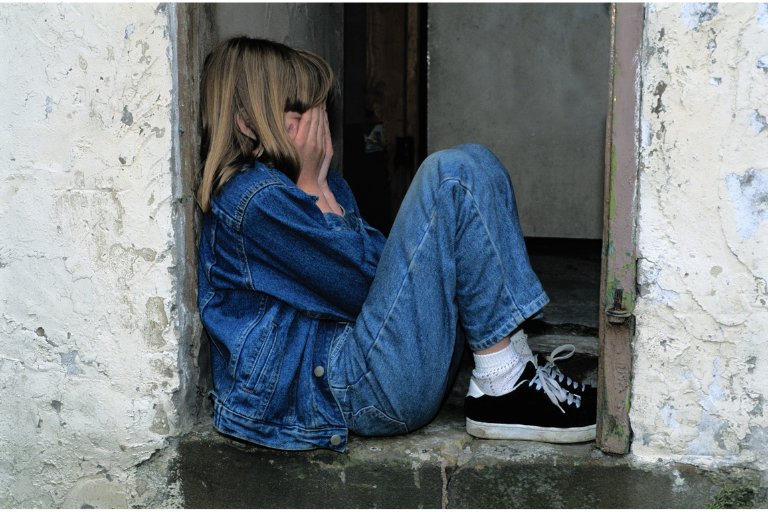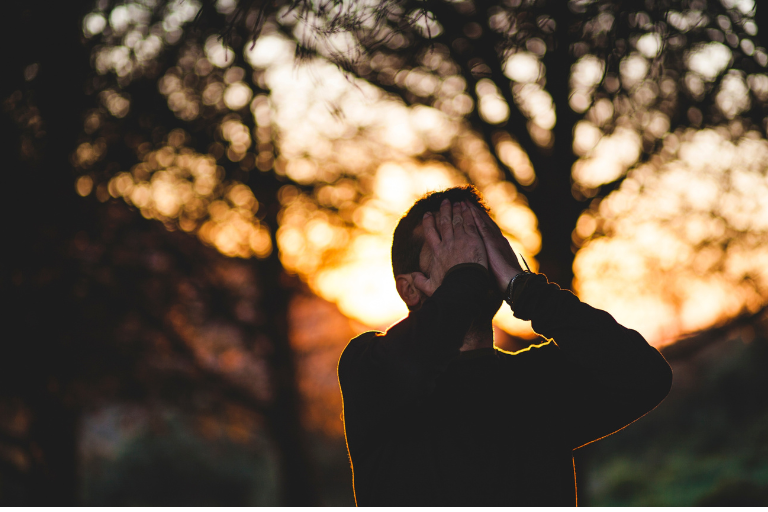- Home
- Think Pieces
- Psychology and Language
- Fear of Crying
The Fear of Crying | Why People are Scared to Cry, But Why You Should
Are you scared to cry? Do you ever hold back your tears or hide them when you're in front of other people? Let's explore the fear of crying.

Crying is an act of extreme vulnerability. So it's no suprise that there is such thing as a fear of crying.
Let's discuss why this fear arises and why individuals may be scared of crying in public or seeing others cry. We'll conclude by discussing the benefits of crying and why your tears matter.
Feel free to join the discussion in the comments section below!
Disclaimer: This information is not a substitute for the professional opinion of a licensed psychologist, psychiatrist or medical doctor.
Fear of Crying - Dacryphobia
First of all, let's address the scientific term for the fear of crying: dacryphobia.
There are many types of interesting and unusual phobias in this world like nomophobia (a fear of being without your mobile phone), ephebiphobia (a fear of adolescents), and linonophobia (a fear of string).
Dacryphobia is another type of phobia that you may not have heard of.
The term comes from two Greek words: dacry - meaning "tears", and phobia - meaning "fear".
Dacryphobia is an irrational fear of crying or experiencing the physiological elements of crying such as your eyes welling up or feeling a lump in your throat.
People with dacryphobia may avoid any situation they believe could trigger tears, such as watching a sad movie in a theatre or even having an argument.
Another phobia that could be associated with a fear of crying is animotophobia, or the fear of emotions.
Animotophobia encompasses the fear of any emotions, both pleasant and unpleasant.
People with animotophobia dread showing emotions, and may even experience anxiety attacks when pressured to express their feelings.
Maybe when you think of a fear of crying, you don't necessary think of these extreme examples or phobias. Let's talk about more subtle ways that a fear of crying often presents itself.
The Fear of Seeming Weak

A less extreme, more common cause of a fear of crying is the fear of appearing weak.
In this case, it's not really the fear of crying itself, but fear of the consequences of crying, including what people may think of you if you cry.
Unfortunately, society has imprinted on some people the idea that if you cry it means you are "too sensitive."
Crying is seen as a rock-bottom response - something you do when you have no other way of dealing with the situation that is causing you distress.
It often also viewed as a sign of fragility.
This is especially true if you're an adult.
Many people are okay with accepting the idea that a child might cry - when they are sad, scared, or stressed - for example.
However, crying as an adult can cause embarrassment when it results in receiving uncomfortable stares, looks of horror, or even unwelcoming pity.
In addition, one may shudder at the future implications of being caught crying.
For example, many people avoid crying because they imagine that the guilt of appearing emotionally weak to another person will haunt them days, weeks, and months into the future.
Because of this, many may chose to reserve their tears for moments of solitude when they cry their heart out without any fear of judgement.
The Role of Trauma in Developing a Fear of Crying
Past trauma can play a role fear of crying or emotional avoidance. For example, if one grew up with a parent who always scolded them whenever they cried, it could impact them for the rest of their life, causing them to do everything within their means to avoid breaking down in front of others.
Research shows that people with PTSD often try to avoid or “push away” their emotions, both emotions about a traumatic experience and emotions in general.
The Truth About Crying
The truth is that crying is not a sign of weakness.
On the contrary, it takes courage to cry.
The strongest people are the ones who have the strength to face themselves and recognize their need for emotional expression.
It's true that crying won't solve things.
But we don't cry to solve, we cry to release.
Emotions serve important psychological and physiological purposes. They provide us with information about ourselves and the things going on around us.
If we encounter a certain situation that makes us stressed and we start to cry, it's a signal that we may need to take a step back and evaluate our relationship to the situation.
For example, sadness may tell us that we need to take some time to take care of ourselves or seek help from others.
Fear of Seeing Others Cry
Let's touch on another type of fear of crying: a fear of seeing others cry.
Some people find themselves very poorly equipped to react to the tears of others.
For example, a person might freeze up when someone starts crying in front of them, instead of providing comfort to the distressed.
Why is this the case?
Well, one reason is that having to deal with the emotions of others, especially people you don't know very well, requires a level of effort and sensitivity that many people just aren't comfortable with or used to.
And it doesn't mean that the person who freezes up is heartless, they might just not know if their comfort would be welcome, or they might be afraid of making the problem worse.
Vulnerability is something a lot of us are having to learn, whether it's showing vulnerability ourselves or learning how to be a safe haven for others when they are vulnerable with us.
The Benefits of Crying

When you're about to cry, your first instinct may be to hold back your tears.
But letting them out might actually be the smart move.
Tearing can signal to your brain to release to endorphins called leucine-enkephalins, which act like pain relievers to boost your mood.
According to Stephen Sideroff, Ph.D., a clinical psychologist at UCLA: "Letting down one's guard and one's defenses and [crying] is a very positive, healthy thing."
Stress "tightens muscles and heightens tension, so when you cry you release some of that," Sideroff says. "Crying activates the body in a very healthy way."
Final Thoughts
Overall, crying is a wonderful way to release your stress and emotions that may be killing you inside.
Yes, that's true even if you're "ugly crying".
If you feel an urge to release such an intense flow of emotions, then it's probably best that those emotions come out, rather than remaining pent up inside.
When I reflect on the times when I've cried most intensely in my life, I can appreciate that each and every time - although I may not have known it at the time - I was on the precipice of change, and my life was about to change for the better.
On an emotional level, crying is often the tipping point.
Something always changes after you cry, a decision is made that changes the flow of life and the way you interact with certain individuals from then on.
Unfortunately, we often confuse discomfort for unhappiness and cope with the latter while running from the former.
It usually takes a bit of discomfort to break through to a new understanding, to release a limting belief, to motivate ourselves to create real change.
So don't run away from crying, it may be exactly what you need.
Warmly,
Roli Edema
Thanks for reading! If you enjoyed this article, please share it with someone else.
Thanks for reading! If you liked this content, share with a friend:
Recent Articles
-
Inner Work with Anna Gwozdz | Unlocking the Root of Avoidance
Jun 22, 25 03:14 PM
In this spotlight interview, therapist Anna Gwozdz reveals one way we unconsciously hide from discomfort and prevent real healing and growth in our lives. -
Inner Work with Dr. Shervin Vakili | What is Emotional Resilience?
May 18, 25 06:33 PM
In this spotlight interview, Calgary therapist Dr. Shervin Vakili shares unique insights on emotional resilience and making space for strong emotions. -
The Best Python Courses Online
Apr 11, 25 10:19 PM
Here are the best python courses online to help you learn python programming and and practice your new skills through hand-ons projects and exercises.
Your second block of text...




New! Comments
Have your say about what you just read! Leave me a comment in the box below.